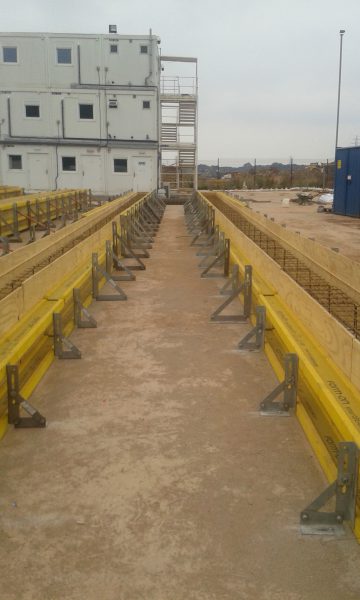ਦਸੰ. . 14, 2024 18:37 Back to list
Innovative Flexible Formwork Solutions for Modern Concrete Construction Companies
The Future of Construction Flexible Formwork for Concrete Companies
In the rapidly evolving world of construction, innovation is the key to improving efficiency and sustainability. One such innovation that has been garnering attention is flexible formwork for concrete applications. This method, which leverages adaptable materials and designs, presents a host of benefits that can transform the conventional concrete pouring process for construction companies.
Understanding Flexible Formwork
Flexible formwork refers to a construction technique that utilizes malleable materials to create forms that can be reshaped or adjusted to accommodate various designs. Unlike traditional rigid formwork, which often limits architects and engineers to standard shapes and sizes, flexible formwork allows for creative freedom. This adaptability is particularly beneficial in projects that require unique architectural elements, ensuring that structures can not only meet functional requirements but also adhere to aesthetic demands.
Benefits of Flexible Formwork
1. Enhanced Design Freedom One of the most significant advantages of flexible formwork is the creative potential it unlocks. It enables architects to explore unconventional shapes and forms that were previously impractical or too costly to produce with traditional methods. This capability allows for innovative designs that can enhance the visual appeal of buildings.
2. Cost Efficiency While the initial investment in flexible formwork materials may vary, the overall cost savings can be substantial. The ability to reuse flexible forms multiple times significantly reduces expenses associated with manufacturing and disposing of traditional rigid forms. Furthermore, as construction timelines can be shortened due to the ease of installation and disassembly, labor costs are often reduced as well.
3. Sustainability In an age where environmental concerns are paramount, flexible formwork offers a sustainable alternative to conventional methods. Many flexible formwork systems are produced using recyclable materials, diminishing the environmental impact of construction processes. Additionally, the reduction in waste generated from reusable forms contributes positively to eco-friendly building practices.
flexible formwork for concrete companies

4. Improved Labor Efficiency Flexible formwork systems are designed for ease of handling and setup. This user-friendly aspect means that laborers can install and remove forms more rapidly. As a result, construction companies can allocate their labor resources more effectively, leading to improved overall productivity on job sites.
5. Better Surface Quality The flexibility of these formwork systems allows for better adherence to surfaces and irregular shapes, resulting in improved surface finishes. The outcome is higher quality concrete structures that require less finishing after the casting process, further streamlining construction activities.
Implementation Challenges
Despite its many advantages, the adoption of flexible formwork is not without challenges. Companies must navigate the learning curve associated with new techniques and materials. Training workers to handle flexible systems properly is crucial to maximize their potential and ensure safety on the job site. Additionally, careful planning and design are essential to avoid issues related to structural integrity when using flexible forms.
Future Outlook
As the construction industry embraces modernization, the potential for flexible formwork systems continues to grow. With advancements in materials science and engineering, it is likely that we will see even more innovative flexible formwork solutions emerging. Companies that invest in these technologies are well-positioned to capitalize on the demand for unique, sustainable, and efficient building practices.
Concrete companies are encouraged to explore the possibilities of flexible formwork. By integrating this technique into their projects, they can not only meet the needs of clients looking for distinctive designs but also contribute to the overall sustainability of the construction industry. As we continue to face challenges such as resource scarcity and environmental degradation, embracing innovations like flexible formwork is not just beneficial; it is essential for a thriving and responsible construction future.
In conclusion, flexible formwork represents a significant shift in how concrete can be utilized in the construction industry. By offering design freedom, cost efficiency, sustainability, improved labor practices, and superior surface quality, it positions concrete companies at the forefront of modern construction practices. As the industry adapts to these innovations, the potential for growth and excellence in the field is boundless.
-
High-Quality U Head Jack Scaffolding – Reliable Scaffolding Jack Head Manufacturer & Factory
NewsJul.08,2025
-
High-Quality I Beam H20 Leading Timber Beam H20 Material Factory, Exporters & Manufacturers
NewsJul.08,2025
-
High-Quality Powder Coating Steel Formwork - Durable & Corrosion Resistant Solutions
NewsJul.07,2025
-
Inclined Column Formwork Supplier – Durable & Precise Solutions for Unique Structures
NewsJul.07,2025
-
High-Quality Water Stop Solutions Trusted Water Stop Company & Suppliers
NewsJul.07,2025
-
High-Quality Formwork Material Supplier Reliable Manufacturer & Factory Solutions
NewsJul.06,2025